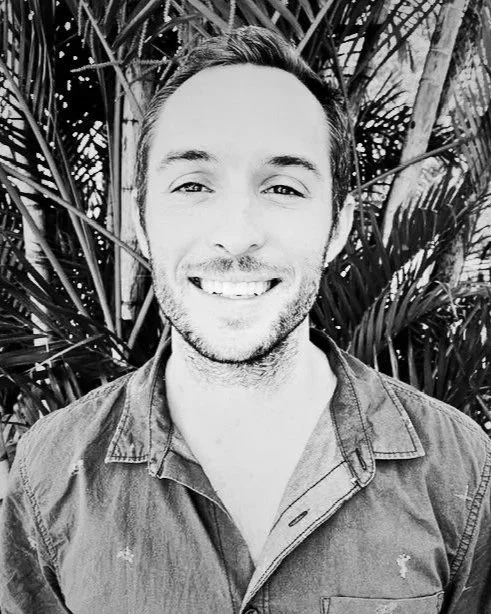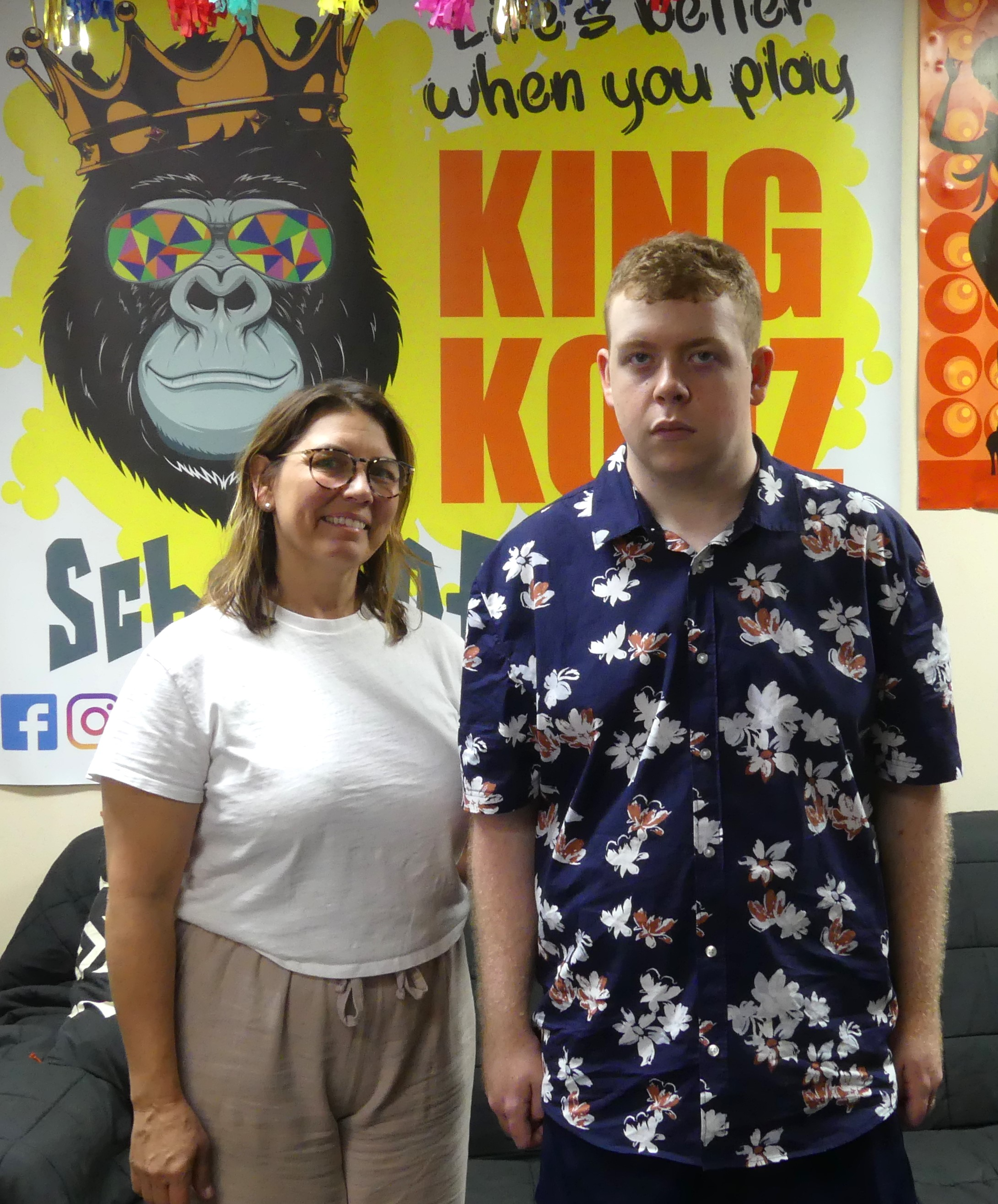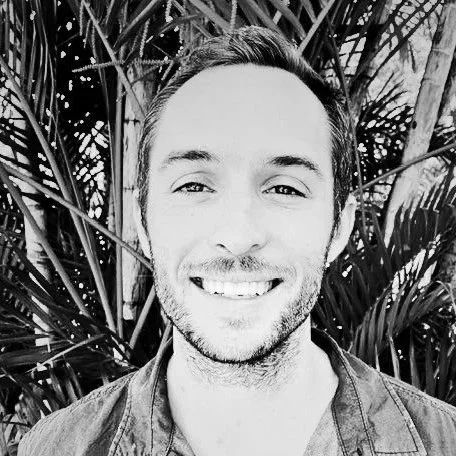Ricky Esterquest On Building Collaborative Regional Communities And Social Enterprise Ecosystems
Ricky Esterquest is the Founder of Towards Better, a Townsville-based social enterprise helping businesses maximize efficiency through customised employment and supporting workforce growth in technical and support roles.
With over 15 years’ experience in human services, Ricky & the Towards Better team partner with local businesses and organisations to create inclusive employment opportunities that drive business success while strengthening community impact.
Passionate about social inclusion, he works to connect untapped talent with meaningful roles, championing innovation and workforce diversity. Through Towards Better, Ricky empowers businesses and communities to thrive together, building a sustainable, inclusive future for Northern Queensland.
Ricky discusses how social enterprises can create inclusive and thriving communities through establishing meaningful employment pathways, and practical ways to activate local ecosystems, strengthen relationships, and balance impact with business sustainability.
Highlights from the interview (listen to the podcast for full details)
[Indio Myles] - To start off, can you please share a bit about your background and what led you to working in social enterprise and community transformation?
[Ricky Esterquest] - I didn’t always work in social enterprise. I’m originally from Chicago, and I moved to Townsville about 10 years ago. My wife and family are based here, so it was a bit of a culture shock.
I’ve always worked in inclusive recreation in some way. I grew up with family members with a disability, and that was always in the back of my mind. I knew about how people aspired to work, but also how difficult the pathway was to navigate.
When I moved to Australia, I saw some great opportunities in regional areas like Townsville that really needed to look after their own, be more resourceful, and nurture the talent available here. That’s always been a passion of mine.
Like any good idea, you put it off for a while, test the market, and try to understand what’s going on. It wasn’t until 2020 that I decided to take some of those ideas and bring them together in what is now Towards Better and how we operate today.
As the founder of Towards Better, can you share more about the organisation and how it’s building inclusive and thriving communities?
It’s a question we get quite a lot, because Towards Better doesn’t necessarily tell you much by its name. A good way to frame it is that all of us have roles in our lives, most of them valued roles. For me, I’m a father and husband. I’m a business owner and baseball player, and from a young age, I was an employee. Work has always been a huge part of my life, from entrepreneurial things like mowing lawns to my first formal jobs.
Towards Better is underpinned by the belief that for communities to thrive, everyone needs to be involved in active and meaningful ways. That includes those valued roles like working, studying, and volunteering.
Primarily, our work is centred on supporting people, especially those with a disability. The statistics around economic participation for people with a disability haven’t shifted for a long time, and work with people in an ongoing, careers-focused way, supporting them to build skills and find meaningful roles.
As we discover more about people, we’re also on the lookout for opportunities in community life , whether that’s through business connections we already know, links with tertiary education, or relationships with community associations. Our role is really as an intermediary, a bridge builder between people and community life.
How have your values shaped your approach to building Towards Better, and more generally, how do you propel community development through employment pathways?
It’s interesting when you think about values-based leadership. I’ve worked in plenty of places where values were something actively practised, and I’ve also worked in businesses where values were just words written on a wall.
One of the main values at Towards Better is relationships. We know the power of relationships is huge, not only our relationships with the people we support, but also with our team and the broader community. Sometimes it is about who you know. That’s why we do reference checks, it’s how we introduce ourselves, and it often comes down to the mutual connections we have.
Getting to know people really well is extremely important to this work. That’s how we discover passions and interests, and it’s why being in it for the long term matters. I’m not planning to leave Townsville anytime soon, and in a regional community like this, with 200,000 people and surrounding towns of just a few thousand, those relationships are incredibly powerful.
Another core value for us is inclusion and interdependence. We know that when people are included, communities thrive; whether that’s in a business, a sporting club, or a classroom. Everyone being involved builds a strong culture. The truth is, people aren’t really independent. We all rely on others for many things. Our work is about creating bonds between two parties, whether that’s between a business and a person, or between an individual and their local community.
These values are key aspects of our model, and they help strengthen our partnerships and social procurement relationships.
You’ve facilitated regional social enterprise activation events in Townsville. What insights regarding building strong local ecosystems and fuelling collaboration between diverse sectors have you collected from these events?
I wish I had the “number one key thing” to it all, but there are a few important points I’ve noticed over time.
The first goes back to relationships. There’s some great research and a manifesto developed by the Social Enterprise World Forum called the Rural Social Enterprise Manifesto, and a lot of what I’ve observed aligns with it. One of the key elements is the importance of place-based efforts and starting locally with what resources are already there.
The events we held over two years, which are still ongoing, consistently drove relationships. The same people would show up regularly, sometimes in new roles with different companies, but the knowledge and connections remained. That continuity was critical. Getting to know and trust each other over time proved to be extremely important.
Another key element was meeting the needs of both parties. It’s about understanding what people are buying that enterprises could address, and also what enterprises need to evolve into so they can meaningfully engage with businesses.
Then there’s the power of looking at local assets. We often think we need to create something entirely new, but more often than not, there’s already a lot we can tap into locally to strengthen relationships. It’s also about sustained effort. Too often events can feel like a “fly in, fly out” arrangement. What we noticed was that people really needed a consistent presence, a person, a small group, or a community, helping to drive ongoing connections and the development of the ecosystem.
You’re mentoring and advising organisations while also practising social entrepreneurship. How do you balance working across so many spaces, and are there any tools, frameworks, or ideas you’d like to share with others in similar circumstances?
Social enterprise wasn’t something I understood much about until early 2020. I’m still quite new to all of this, but I’ve now really immersed myself. One idea that’s helped me is more of a personal exploration. For me, family is a huge part of my life and that’s always been important. At the same time, I wanted to find meaning through work and create a positive difference in the lives of people and communities.
I had to find what I call “life balance.” For me, that means some weeks I might be out of balance in one area, but more balanced in another. I realised that if I was going to commit to this journey, I wasn’t going to have a traditional work–life balance, because my life was my work and my work was my life.
However, I’m never ‘living to work’ if that makes sense. That was an important personal reflection, and I’d encourage others to think about what balance looks like for them.
The other reflection I’d recommend people consider is the constant tension between delivering impact and having a sustainable business model. Social enterprise is so powerful in this space, but for me it’s almost a weekly exercise to revisit whether we’re still mission-locked, by ensuring that our mission, social impact, and business metrics align. The reality is, you can have great values, a strong mission, and deliver excellent services, but if it isn’t financially sustainable, the impact can’t last.
This reflection is critical. Early on I worked with Central Queensland University and other ecosystem builders, and I found a lot of value in those experiences to help guide this balance.
Just to give a plug to Impact Boom, I think immersing yourself in any of the learning opportunities that can elevate you is important. By doing so, you’re able to learn from others what all of this means and how it relates directly to your own social enterprise model.
The third thing I’d emphasise comes from my experience working in the lives of people, often those who are living on the margins of society. That could include people with disabilities, migrants and refugees, people who’ve previously been incarcerated, and/or older adults; anyone who might be more likely to experience exclusion, loneliness, or isolation.
For me, it comes down to being clear on three things:
First, who are the people you’re working with? Getting to know them deeply is crucial, and you can begin that even before you formally start your enterprise. Think about whether there are particular ages, genders, cultures, or backgrounds of people you feel drawn to work alongside.
Second, what are the needs of those people? Think about the things that are important to you, things like friendships, opportunities for learning and growth, financial independence, meaningful work, and having a home of your own. What do those general needs look like for the people you want to serve?
Third, how does your enterprise meet those needs? All of these elements need to align in some way.
Alignment with the needs of who we are serving is also an area that continually creates tension. We have to keep asking: are we truly meeting the needs of people and communities? How do we avoid drifting too far from what we’re currently doing, while also looking for opportunities to stretch and innovate?
I don’t have all the answers, but I think there are nuggets in there that might resonate with people. It’s a tough journey, but it’s one I definitely wouldn’t change.
What advice would you give to someone who wants to start a social enterprise that is deeply rooted in relationships and community-driven outcomes?
First, start with what you know. Choose something you’re passionate about and genuinely interested in, because like any business or work pursuit, the journey is going to be long. You want to make sure it’s something you enjoy and can stay committed to.
Second, don’t get caught up in waiting for the funding, money, or the right grant. Those things are important, but if you wait for them, they’ll hold you up for a long time. Instead, look at how you can take your idea and start testing it out. That’s what teaches you the most. It’s why I started Towards Better and kept going despite COVID and other challenges. I knew I needed to evolve and learn along the way.
Early on, I found it helpful to partner with someone who believed in the model and wanted to collaborate, not as a traditional investor, but as someone who was willing to commit alongside me. That provided some good cash flow in the beginning. I also sought out smaller bits of funding for specific needs, but the key was that I had already started.
Third, think carefully about your business model. A social enterprise is still a business, so reflect on how to make it a proper business while keeping the focus on social, environmental, or cultural impact. Service-based businesses can be harder to get off the ground, so think about where there’s genuine demand.
For example, I often hear from businesses looking for handyman services, trades, courier and delivery, or products like office furniture. There are real market needs out there, and aligning with them is crucial.
never underestimate the power of story. Creating stories that people can connect with in a tangible way is incredibly important. Many of our projects at Towards Better involve people working alongside businesses or in their local communities. Those real-life stories have propelled our model forward, because people can see and feel the impact. If you’re in a regional, remote, or rural area, storytelling is even more powerful.
The context is very different compared to a big city, and those stories really resonate locally.
What inspiring projects or initiatives have you come across recently creating a positive change?
If you’re in the Brisbane area, I’d suggest getting involved with the social enterprise network there (QSEC). Being involved locally and connecting face-to-face with your local ecosystem or state group is always worthwhile.
Some of the work of ACRE, the Australian Centre for Rural Entrepreneurship, has been particularly inspiring to me, especially in terms of effective community development. For example, some local communities in Victoria have bought back local assets, like the Beechworth Jail, and activated them through social enterprise. As someone passionate about regional areas, I find that incredibly powerful. I think Matt (Pfahlert) has been on a few different podcast episodes sharing more about that work.
I’d also highlight the work of Social Enterprise Schools, which is very useful in building awareness and capability from an early age.
What books or resources would you recommend to our audience?
I enjoy a wide range of books, but Jim Collins has written some great ones, including Good to Great and Entrepreneurship 2.0. They contain really valuable insights.
For those interested in disability inclusion specifically, there are some excellent statistics and articles out there about the employment of people with disability. Many are easy to find with a quick search and provide great context about people’s lived experiences.
If you haven’t already, check out CoorDown. They’ve released a series of videos on their YouTube channel that are equally inspiring. Sometimes those smaller, accessible resources can spark new ideas.
To finish off, are there any final thoughts you’d like to share with our audience about the future of building social enterprise movements within regional Australia?
Every community already has what they need to get started. Look around your local area, whether that’s in Townsville or a suburb somewhere else. Identify what assets already exist: the businesses, associations, interest groups, government and non-government bodies, and local councils. Tap into what’s already strong and working well, and then seek outside help if you need it.
Don’t feel like you have to be the one doing everything. Early on, I fell into the trap of trying to do it all myself and almost becoming the “face” of social enterprise in Townsville. While I’m grateful for the opportunities that created and for being seen as a bit of a champion, there are plenty of other passionate people out there. Sometimes it’s as simple as making a small ask, inviting someone to join you for a coffee and conversation, or asking if they’d like to come along to a meeting. The power of a small ask can’t be underestimated.
Those are two things I’d encourage people to keep in mind. When you’re in a regional or remote area, which can feel quite distant from other places — and Australia is very spread out — it’s about being resourceful. Stay inspired, whether that’s through reading, courses, or immersing yourself in what others are doing. You don’t need to reinvent the wheel.









